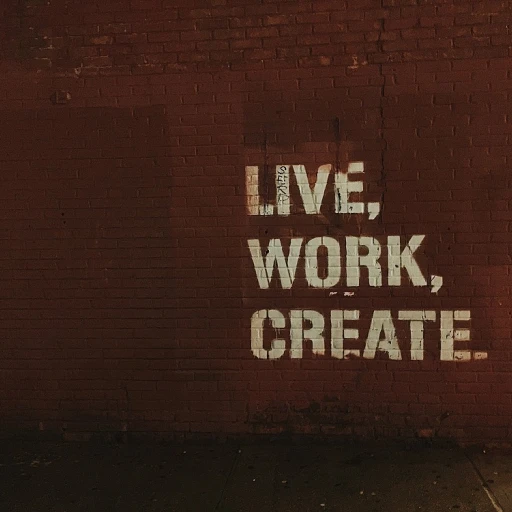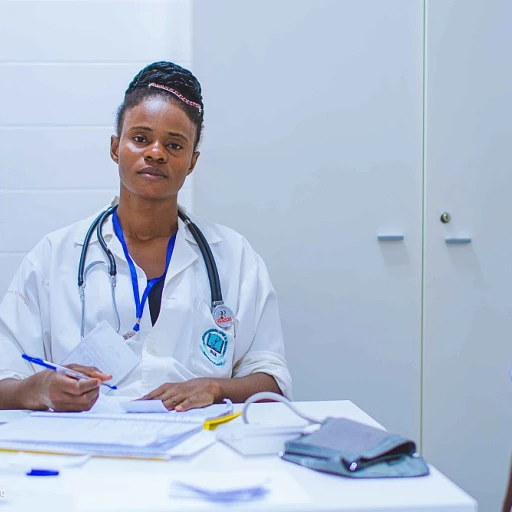
Understanding the role of a high school paraprofessional
What Does a High School Paraprofessional Do?
Understanding the role of a high school paraprofessional is essential before preparing for interview questions. Paraprofessionals work closely with teachers and students, providing vital support in the classroom. They help create a positive learning environment, assist with classroom management, and support students’ academic and social development. In many cases, paraprofessionals work with students with disabilities or those needing extra help to achieve their education goals.
Key Responsibilities and Skills
- Supporting teachers in lesson delivery and classroom activities
- Assisting students individually or in small groups, especially those in special education
- Helping monitor student progress and providing positive reinforcement
- Maintaining a safe and inclusive learning environment
- Respecting student privacy and adhering to the school’s privacy policy
- Collaborating with other education professionals to support student learning
Why Experience Matters
Experience working with students, especially those with special needs, is highly valued in paraprofessional interview questions. Interviewers often look for examples of how you have supported student learning, managed classroom challenges, and worked as part of a team. If you have experience in education or have supported students in other settings, be prepared to discuss how those skills will help you succeed in this job.
Professional Growth and Collaboration
High school paraprofessionals are expected to engage in ongoing professional development. This helps them stay updated on best practices for supporting students and working with teachers. Strong communication and collaboration skills are crucial, as you will often work with a variety of education professionals to help students reach their full potential.
If you are considering a career as an education paraprofessional, understanding these responsibilities and skills is the first step. For more tips on preparing for HR job interviews and building your career in education, check out this guide on how to succeed in HR job interviews.
Common interview questions for paraprofessional in high school
Key Questions You Might Encounter in a Paraprofessional Interview
Interviewers for high school paraprofessional positions often focus on your direct experience with students, your understanding of the classroom environment, and your ability to support both teachers and learners. Here are some common interview questions you may face, along with insights on what they aim to uncover:- What experience do you have working with students, especially those with special needs?
Interviewers want to know about your hands-on experience in education settings. Discuss your previous roles, the types of students you have supported, and any specific strategies you used to help student learning and progress. - How do you support teachers in the classroom?
This question assesses your ability to collaborate and assist with classroom management. Highlight your skills in helping with lesson preparation, small group instruction, and maintaining a positive learning environment. - Describe a time you helped a student overcome a learning challenge.
Here, your answer should discuss a specific example, focusing on your approach, the support you provided, and the outcome for the student. Emphasize your commitment to student success and positive reinforcement. - How do you handle confidential information about students?
Maintaining student privacy is critical. Explain your understanding of privacy policy and your approach to handling sensitive information in a professional manner. - What strategies do you use to support students with disabilities?
Share your knowledge of special education practices, individualized support, and how you adapt your approach to meet diverse needs in the classroom. - How do you contribute to a positive and inclusive learning environment?
Discuss your role as a paraprofessional in fostering respect, encouraging participation, and supporting all students, including those in special education. - Can you give an example of working with a small group of students?
Describe your experience managing small groups, facilitating activities, and monitoring student progress.
Tips for Answering Paraprofessional Interview Questions
- Use real examples from your work or volunteer experience to demonstrate your skills.
- Connect your answers to the needs of students, teachers, and the overall school environment.
- Show your understanding of the role paraprofessionals play in supporting student learning and classroom management.
- Highlight your commitment to professional development and ongoing learning in education.
Behavioral questions and how to answer them
How to Approach Behavioral Interview Questions
Behavioral interview questions are a common part of the paraprofessional interview process. These questions help schools understand how you have handled situations in the past and how you might respond to similar challenges in their learning environment. When preparing for these questions, focus on your experience working with students, especially those with special needs or in special education settings. What Interviewers Want to Know- Your ability to support students and teachers in the classroom
- How you manage classroom dynamics and student behavior
- Your approach to fostering student learning and progress
- How you handle challenges, including working with students with disabilities
- "Describe a time you helped a student overcome a learning challenge."
Share a specific example, explain the steps you took, and discuss the outcome. Highlight your support skills and commitment to student progress. - "Tell us about a situation where you had to manage a small group of students with different needs."
Discuss your classroom management strategies and how you ensure every student receives the attention they need. - "Give an example of how you used positive reinforcement to encourage student behavior."
Explain your approach to motivation and how it improved the learning environment. - "How have you collaborated with teachers to support students with special needs?"
Describe your teamwork skills and how you work with teachers to create effective education plans. - "Share an experience where you maintained student privacy while supporting their learning."
Talk about your understanding of privacy policy and the importance of confidentiality in education.
- Use the STAR method (Situation, Task, Action, Result) to structure your answers.
- Be honest about your experience working in schools or with students with disabilities.
- Show your commitment to professional development and continuous learning.
- Highlight your adaptability and willingness to help wherever needed in the classroom.
Demonstrating your communication and collaboration skills
Showcasing Effective Communication in the Classroom
During a paraprofessional interview, you will likely face questions about how you communicate with students, teachers, and other staff. Strong communication skills are essential for supporting student learning and maintaining a positive classroom environment. When answering these interview questions, focus on your experience working with students of different backgrounds and abilities, including those in special education settings.
- Describe how you provide clear instructions to students, especially when working with small groups or students with disabilities.
- Discuss your approach to giving feedback and using positive reinforcement to encourage student progress.
- Share examples of how you help students understand classroom expectations and routines.
Collaboration with Teachers and School Staff
Paraprofessionals play a key role in supporting teachers and contributing to a collaborative learning environment. Interviewers may ask questions about your ability to work as part of a team. Highlight your experience supporting teachers in lesson delivery, classroom management, and adapting materials for students with special needs.
- Explain how you communicate with teachers to understand student needs and learning goals.
- Share how you participate in meetings or professional development to improve your skills and support students more effectively.
- Give examples of how you respect privacy policy and maintain confidentiality when discussing student information.
Practical Tips for Answering Communication and Collaboration Questions
When preparing for paraprofessional interview questions, use real examples from your education or work experience. If you have experience working with students special or in a special education classroom, discuss how you adapted your communication style to meet their needs. Be honest about challenges and explain how you worked with teachers to find solutions that help students succeed.
Remember, interviewers want to see that you can support students, contribute to a positive learning environment, and work well with others in the school community. Practice your answers so you can discuss your skills with confidence during the job interview.
Addressing challenges and conflict resolution
Handling Difficult Situations with Students and Staff
Paraprofessionals in high school settings often face challenging situations, whether supporting students with special needs, managing classroom disruptions, or navigating disagreements with teachers or other staff. During your paraprofessional interview, you can expect questions that explore your approach to conflict resolution and your ability to maintain a positive learning environment. When answering these interview questions, focus on your experience working with students and your understanding of classroom management. Interviewers want to see that you can help support students, especially those with disabilities, while also collaborating effectively with teachers and other education professionals.- Describe a time you managed a conflict between students or between a student and a teacher. Discuss the steps you took to de-escalate the situation, how you maintained respect for everyone involved, and the outcome. Highlight your communication skills and your commitment to student progress.
- How do you address challenging behavior in the classroom? Share your strategies for positive reinforcement, setting clear expectations, and working with teachers to create a supportive learning environment. Mention any professional development or training you have received in classroom management or special education.
- What would you do if you disagreed with a teacher about how to support a student? Explain how you would approach the conversation professionally, focusing on the student's needs and collaborating to find the best solution. Emphasize your respect for the teacher's expertise and your willingness to learn.
Questions you should ask the interviewer
Smart Questions to Ask During Your Paraprofessional Interview
Asking thoughtful questions at the end of your paraprofessional interview shows your genuine interest in supporting students and working collaboratively with teachers. It also helps you determine if the school and classroom environment align with your values and skills. Here are some effective questions you can consider:- What does a typical day look like for a paraprofessional in this school? — This question helps you understand daily expectations and the variety of tasks you might handle, from small group instruction to classroom management.
- How does the school support paraprofessionals in their professional development? — Asking about training and growth opportunities shows your commitment to learning and improving your skills in education and special education.
- How are paraprofessionals involved in supporting students with disabilities or special needs? — This question demonstrates your awareness of the importance of inclusive education and your willingness to help students with diverse learning needs.
- What strategies does the school use to promote positive reinforcement and student progress? — Understanding the school’s approach to student learning and motivation helps you see how your role as a paraprofessional fits into the larger educational goals.
- How do teachers and paraprofessionals collaborate to address challenges in the classroom? — This question highlights your interest in teamwork and effective communication, both essential for supporting students and teachers.
- Can you share how privacy and confidentiality are maintained when working with students, especially those in special education? — This shows your understanding of privacy policy and your commitment to ethical standards in education.
- What are the biggest challenges paraprofessionals face in this school, and how are they supported? — This gives you insight into the realities of the job and the support systems in place for paraprofessionals.













